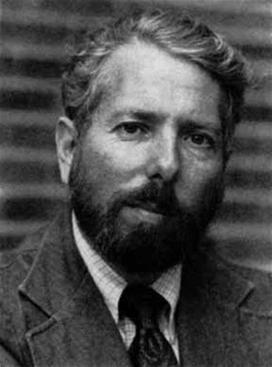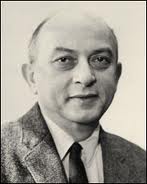Related Research Articles

The Milgram experiment(s) on obedience to authority figures were a series of social psychology experiments conducted by Yale University psychologist Stanley Milgram. They measured the willingness of study participants, 40 men in the age range of 20 to 50 from a diverse range of occupations with varying levels of education, to obey an authority figure who instructed them to perform acts conflicting with their personal conscience. Participants were led to believe that they were assisting an unrelated experiment, in which they had to administer electric shocks to a "learner". These fake electric shocks gradually increased to levels that would have been fatal had they been real.

Stanley Milgram was an American social psychologist, best known for his controversial experiments on obedience conducted in the 1960s during his professorship at Yale.

In the early hours of March 13, 1964, Kitty Genovese, a 28-year-old bartender, was raped and stabbed outside the apartment building where she lived in the Kew Gardens neighborhood of Queens in New York City, New York, United States. Two weeks after the murder, The New York Times published an article erroneously claiming that 38 witnesses saw or heard the attack, and that none of them called the police or came to her aid.
The bystander effect, or bystander apathy, is a social psychological theory that states that individuals are less likely to offer help to a victim in presence of other people. First proposed in 1964 after the murder of Kitty Genovese, much research, mostly in psychology research laboratories, has focused on increasingly varied factors, such as the number of bystanders, ambiguity, group cohesiveness, and diffusion of responsibility that reinforces mutual denial. If a single individual is asked to complete the task alone, the sense of responsibility will be strong, and there will be a positive response; however, if a group is required to complete the task together, each individual in the group will have a weak sense of responsibility, and will often shrink back in the face of difficulties or responsibilities. The theory was prompted by the murder of Kitty Genovese about which it was wrongly reported that 38 bystanders watched passively. Recent research has focused on "real world" events captured on security cameras, and the coherency and robustness of the effect has come under question. More recent studies also show that this effect can generalize to workplace settings, where subordinates often refrain from informing managers regarding ideas, concerns, and opinions.
Obedience, in human behavior, is a form of "social influence in which a person yields to explicit instructions or orders from an authority figure". Obedience is generally distinguished from compliance, which is behavior influenced by peers, and from conformity, which is behavior intended to match that of the majority. Depending on context, obedience can be seen as moral, immoral, or amoral.

Solomon Eliot Asch (September 14, 1907 – February 20, 1996) was a Polish-American Gestalt psychologist and pioneer in social psychology. He created seminal pieces of work in impression formation, prestige suggestion, conformity, and many other topics. His work follows a common theme of Gestalt psychology that the whole is not only greater than the sum of its parts, but the nature of the whole fundamentally alters the parts. Asch stated: "Most social acts have to be understood in their setting, and lose meaning if isolated. No error in thinking about social facts is more serious than the failure to see their place and function". Asch is most well known for his conformity experiments, in which he demonstrated the influence of group pressure on opinions. A Review of General Psychology survey, published in 2002, ranked Asch as the 41st most cited psychologist of the 20th century.
Abraham Michael Rosenthal was an American journalist who served as The New York Times executive editor from 1977 to 1986. Previously he was the newspaper's city editor and managing editor. Near the end of his tenure as executive editor, he became a columnist (1987–1999). Later, he had a column for the New York Daily News (1999–2004).
In the fields of sociology and social psychology, a breaching experiment is an experiment that seeks to examine people's reactions to violations of commonly accepted social rules or norms. Breaching experiments are most commonly associated with ethnomethodology, and in particular the work of Harold Garfinkel. Breaching experiments involve the conscious exhibition of "unexpected" behavior/violation of social norms, an observation of the types of social reactions such behavioral violations engender, and an analysis of the social structure that makes these social reactions possible. The idea of studying the violation of social norms and the accompanying reactions has bridged across social science disciplines, and is today used in both sociology and psychology.
John M. Darley was an American social psychologist and professor of psychology and public affairs at Princeton University. Darley is best known, in collaboration with Bibb Latané, for developing theories that aim to explain why people might not intervene at the scene of an emergency when others are present; this phenomenon is known as the bystander effect and the accompanying diffusion of responsibility effect. This work stemmed from the tragic case of Kitty Genovese, a New Yorker who was murdered in March 1964 while 38 people either witnessed or heard her struggling with the assailant. Darley also studied the effect of assessment on performance and proposed Darley's Law, which states that “The more any quantitative performance measure is used to determine an individual’s rewards, the more subject it will be to corruption pressures and the more it will distort the action and thought patterns of those it is intended to monitor.”

Obedience to Authority: An Experimental View is a 1974 book by social psychologist Stanley Milgram concerning a series of experiments on obedience to authority figures he conducted in the early 1960s. This book provides an in-depth look into his methods, theories and conclusions.
Saul Kassin is a distinguished professor of psychology at John Jay College of Criminal Justice - City University of New York and Massachusetts Professor Emeritus of Psychology at Williams College in Williamstown, Massachusetts.
Erwin Mark Stern was a humanistic/existential psychologist.

A social experiment is a type of psychological or sociological research for observing people's reactions to certain situations or events. The experiment depends on a particular social approach where the main source of information is the participants' point of view and knowledge. To carry out a social experiment, specialists usually split participants into two groups — active participants and respondents. Throughout the experiment, specialists monitor participants to identify the effects and differences resulting from the experiment. A conclusion is then created based on the results. Intentional communities are generally considered social experiments.

Rivka Bertisch Meir was an American psychologist, licensed mental health counselor, and psychotherapist. She is known for the creation of personal development programs in the United States, Israel, and Argentina in the 1970s and 1980s and for establishing global partnerships in international psychology.

Experimenter: The Stanley Milgram Story is a 2015 American biographical drama film written and directed by Michael Almereyda, based on the 1961 Milgram experiment. The film stars Peter Sarsgaard, Winona Ryder, Taryn Manning, Kellan Lutz, Anton Yelchin, John Leguizamo, Lori Singer, Dennis Haysbert, Anthony Edwards, and Jim Gaffigan. The film was released on October 16, 2015, by Magnolia Pictures. It is also one of the final films to feature Lori Singer before her retirement in 2017.
Ruth Hubbard Cousins was an American psychologist, best known for her influence in shaping Psi Chi as Executive Secretary and Executive Director from December 1958 to October 1991. In addition Cousins worked with her daughter Carol Tracy to help co-found another psychology honor society, Psi Beta in 1981.

Florence Harriet Levin Denmark is an American psychologist and a past president of the American Psychological Association (APA) (1980-1981). She is a pioneering female psychologist who has influenced the psychological sciences through her scholarly and academic accomplishments in both psychology and feminist movements. She has contributed to psychology in several ways, specifically in the field of psychology of women and human rights, both nationally and internationally.
Thomas Blass was an American social psychologist, Holocaust survivor, and professor of psychology at the University of Maryland, Baltimore County. He is known for his work regarding Stanley Milgram and the Milgram experiment.
Dinesh J. Sharma is an American social scientist, psychologist, academic and entrepreneur in the fields of human development and rights, leadership and globalization; his recent publications include, “The Global Obama: Crossroads of Leadership in the 21st Century” and most recently “The Global Hillary: Women's Political Leadership in Cultural Context."

The psychology of genocide attempts to explain genocide by means of psychology. Psychology of genocide aims to explain the preconditions of genocide and why some people become genocide perpetrators while others are bystanders or rescuers.
References
- ↑ Colangelo, Lisa L. "Kitty Genovese continues to fascinate scholars 50 years after her shocking murder in Queens". nydailynews.com.
- ↑ "It's true: Cities are meaner". Salon. March 24, 2012.
- ↑ "Harold Takooshian on Kitty Genovese and the Bystander Effect". SoundCloud.
- ↑ "Armenian in New York City: A Fascinating History". Institute of Slavic, Eastern Europe, and Eurasian Studies at UC Berkeley (ISEEES). University of California, Berkeley, Regents of the University of California . Retrieved 2021-05-13.
{{cite web}}: CS1 maint: url-status (link) - 1 2 Perry, Gina (2013-09-03). Behind the Shock Machine: The Untold Story of the Notorious Milgram Psychology Experiments. New Press, The. pp. 239–240. ISBN 978-1-59558-925-5.
- ↑ Blass, Thomas (1999-11-01). Obedience to Authority: Current Perspectives on the Milgram Paradigm. Psychology Press. ISBN 978-1-135-68307-8.
- ↑ Giardino, Joseph; Black, Natasha; Donald, Hillary; Bhalla, Rukmini; Takooshian, Harold (January 1, 2011). "Public attitudes toward the ethics of organ donation". Psychology Faculty Publications.
- ↑ Takooshian, Harold (July 1, 2003). "Counseling Psychology's Wide New Horizons". The Counseling Psychologist. 31 (4): 420–426. doi:10.1177/0011000003031004005. S2CID 145488324.
- ↑ N, Miah Md. "Harold Takooshian". www.fordham.edu.
- ↑ "Eye on Psi Chi: Spring 1999 - Psi Chi, The International Honor Society in Psychology". www.psichi.org.
- ↑ "Psi Beta Newsletter". psibeta.org.
- ↑ "MPA Board News Archives".
- ↑ Rosenthal, Abraham Michael (2008). Thirty-eight Witnesses: The Kitty Genovese Case. ISBN 978-1933633299.
- ↑ Zake, I. (May 25, 2009). Anti-Communist Minorities in the U.S.: Political Activism of Ethnic Refugees. Springer. ISBN 9780230621596 – via Google Books.
- ↑ H, Takooshian; A.Ya, Voronov (July 26, 2014). "On the Russian-American Cooperation in Social Psychology (Professor H. Takooshian's Visit to Russia in September-December, 2013)". Social Psychology and Society.
- ↑ Jackson, Kenneth T.; Keller, Lisa; Flood, Nancy (December 1, 2010). The Encyclopedia of New York City: Second Edition. Yale University Press. ISBN 978-0300182576 – via Google Books.
- ↑ "Brian Williams suspended for it, but everybody embellishes". nydailynews.com.
- ↑ "Eye For Film: Interview with Harold Takooshian about Stanley Milgram and Experimenter". www.eyeforfilm.co.uk.
- ↑ "Harold Takooshian". IMDb.
- ↑ "Birth Of Psychology". www.tntdrama.com.